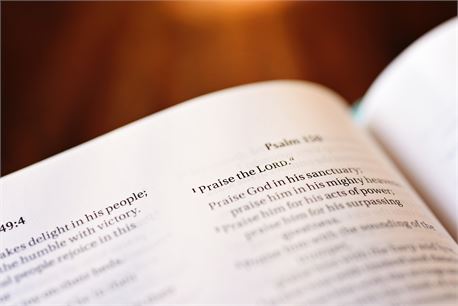Carolyn Moore ~ Real Prayers for Real People

I didn’t immediately fall in love with the Psalms. I found them to be hard to understand and a little dusty. Then some hard things happened in my life and I landed on a few Psalms that became prayers when I didn’t know what to pray. When my mother died, Psalm 42 became my lifeline. Psalm 116 was my testimony in a season when things got bad then got better. I’m embarrassed to say how long it took me to find the profound assurances embedded in Psalm 23.
The Psalms challenge us to pray as if God is real. These ancient prayers give us a fresh vocabulary for prayer. In the library we call the Bible, The Book of Psalms is the prayer book and as examples of how faithful people have prayed through the ages, they can help us all find a better prayer life. Here, we find the all-too-human wrestlings of David (who wrote many, but not all, the Psalms), a man after God’s heart. We hear honest cries for help and deep, worshipful devotion. We get the full spectrum of emotions, not the least of which is anger. I’ve never had the guts to ask God to kill someone else’s child, but it is in there — an assurance that God can handle it even when we are broken, raging or irrational.
What we don’t hear in David’s conversations with God is anything remotely rote. No recitations. No empty wish lists. No shallow musings. No generalized litanies of what we vaguely hope for the world. David Thomas, in his teaching on travailing prayer, writes, “The Bible seems utterly unfamiliar with casual prayer, prayer of the mouth and not of the heart.” In this, the Psalms resonate.
The Psalms are real prayers for real people. They challenge us to think deeply and honestly and give us permission to cry out, to feel, to get close, to give our whole heart, to be rough around the edges, and even to be wrong-headed and stubborn.
But real. Always real.
In Lynn Anderson’s book, They Smell Like Sheep, the author offers several practical tips for those who want to learn how to pray the Psalms.
- Choose a Psalm to focus on. If you don’t know where to start, try googling your feelings — i,e, “Psalm for anger” or “Psalm for discouragement.” The Psalms are so well researched and commented on that you’ll likely find several articles or references that send you to a starting point. Don’t get sidetracked with the article; go to the Psalm.
- Read it through aloud — slowly and thoughtfully — to get its sense. Make it interactive. Reading scripture aloud can make a huge difference in how you hear it.
- Pray it aloud slowly, reflectively, in the first person (as your own prayer for yourself). Don’t hurry. Wallow in it. Savor it. Mean it. Feel free to stop here and journal what is revealed, or make notes in the margins.
- Pray it aloud slowly, reflectively, in the second person, as an intercessory prayer on behalf of some other person.
- Stay there until God shows up. I realize this isn’t great theology. Of course, it isn’t God who doesn’t show up, but us. But from an experiential place, we can admit that when we don’t have the patience for the waiting it can feel as if God is nowhere to be found. It isn’t that he doesn’t show up, but that we refuse him entry by rushing too quickly past the moment.
- Don’t end your prayer when the Psalm ends. Let this Psalm springboard you into the rest of your day’s prayers for current issues and persons that the Psalm has brought to your heart. Let the Psalm shape the day’s prayer list.
Even if it isn’t theologically accurate to say it this way, I stand by this good advice: Stay there until God shows up. If he doesn’t show up immediately, he will show up eventually. How do I know? He promised!
Stay in the place of prayer. Jesus himself said the fruit of an abundant life is in the abiding. May you find your stride, your purpose, your anchoring and your fruitfulness in that place of abiding, travailing, real prayer.
Reprinted with permission from www.artofholiness.com.